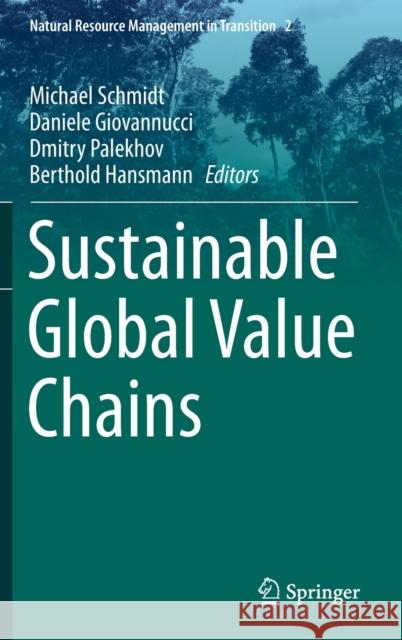Sustainable Global Value Chains » książka



Sustainable Global Value Chains
ISBN-13: 9783319148762 / Angielski / Twarda / 2019 / 730 str.
Sustainable Global Value Chains
ISBN-13: 9783319148762 / Angielski / Twarda / 2019 / 730 str.
(netto: 958,46 VAT: 5%)
Najniższa cena z 30 dni: 848,19
ok. 16-18 dni roboczych.
Darmowa dostawa!
will follow. Please assign ISBN anyway, I've also sent an email to Mr. Schonenberger and the PDM-team, explaining the urgent situation. Many thanks!"
The Editors Review of Evidence and Perspectives on Sustainable Global Value Chains.- Part I.- New Trends in Sustainability Agenda: Political Arena.- Rio+20 and Beyond: A New Era of Sustainable Development, Partnership and Interdependence.- The Grand Vision of G7 in Elmau: Quo Vadis, Sustainability?.- From Stockholm to Paris: Four Decades of Sustainability in International Law.- European Union Policy for Sustainable Development.- Sustainability in Trade and Investment Agreements.- Capacity Building to Promote Sustainable Value Chains: The ValueLinks 2.0 Methodology.- Towards Mandatory Sustainability: Recent Lessons from Germany.- An Introduction to Sustainability in Australia’s Energy Policies- Governmentally Controlled Supply Chains in Areas Facing Food Security Challenges: The Case of Baladi Bread Supply Chain in Egypt and the Policy Transition After the 2011 Uprising.- Tools of Transformation: From Small Scale Progress to Structural Change.- Part II.- New Trends in Sustainability Agenda: Private Sector Initiatives.- Sustainability Governance of Global Supply Chains: A Systematic Literature Review with Particular Reference to Private Regulation.- Chain of Custody and Transparency in Global Supply Chains.- Clarity in Diversity: How the Sustainability Standards Comparison Tool and the Global Sustainable Seafood Initiative Provide Orientation.- Future Role of Voluntary Sustainability Standards: Towards Generation 3.0?.- Part III.- Monitoring and Evaluating Progress Towards Sustainability.- Measuring Progress Towards Sustainability: A View of the Main Approaches to Evaluation.- Transformational Change: The Challenge of a Brave New World.- Impact Assessment of Commodity Standards: Pathways for Sustainability and Inclusiveness.- Performance Monitoring: An Agile New Tool for Facilitating Sustainability in Value Chains.- Evaluating the Potential of a Green Economy in Tunisia: A System Dynamics Modelling Approach for the Solid Waste Management Sector.- Part IV.- Sector Transformation Towards Sustainability: Selected Initiatives.- Designing Progress Towards Sustainable Sectors: The Four Phases of Market Transformation.- What’s Next for Transforming the Palm Oil Sector: More of the Same or Better Embedded?.- The Global Coffee Platform: An Innovative Approach to the Coffee Sector Transformation.- Cocoa Certification in West Africa: The Need for Change.- Sustainability in the Banana Sector: Development and Success Factors of the German Action Alliance for Sustainable Bananas.- Forest Stewardship Council: Transforming the Global Forestry Sector.- Recent Experiences from the Natural Rubber Industry and Its Movement Towards Sustainability.- Responsible Mining: Challenges, Perspectives and Approaches.- Responsible Gold Mining at the Artisanal and Small-Scale Level: A Case Study of Ghana.- Industry Initiatives Towards Environmental Sustainability in the Automobile Value Chains.- Tourism and Sustainability: Transforming Global Value Chains to Networks.- Part V.- Outlook and Emerging Issues.- localg.a.p.: International Know-How Applied at Regional Level.- Cui bono: Who Stands to Gain? Certification for Smallholder Tree-Farmers in Southeast Asia.- Group Certification: Market Access for Smallholder Agriculture.- Towards a Living Income Within Agricultural Value Chains.- Potential for Joint Public and Private Initiatives to Eliminate Deforestation from Global Supply Chains.- Planned Obsolescence: A Case Under Torts Law as Intentional Damage Contrary to Public Policy (Art. 826 German Civil Code).- A Paradigm Shift in University Education Towards Sustainable Development.
Value chains are a vital part of how our world operates, yet we are only beginning to understand how to make them sustainable. This volume addresses the crux of that challenge by presenting a broad array of options for understanding and managing the complexity of sustainability initiatives that affect, and are also influenced by value chains. Its chapters present diverse perspectives on both political and private sector governance, including governmental regulations and private standards, and embrace the emergent and critical value of innovative approaches to monitoring and evaluating progress. Finally, the volume offers a review of concrete examples for transformation and transition towards more sustainable value chains in selected sectors, including, amongst others, agriculture, forestry, mining, and tourism.
1997-2026 DolnySlask.com Agencja Internetowa
KrainaKsiazek.PL - Księgarnia Internetowa









